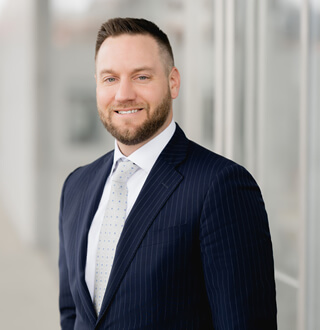Social Security Hearings

Submitting an application for Social Security disability is a challenging and complex process. It requires extensive documentation and attention to detail. While it is difficult enough to deal with the circumstances of developing a disabling condition through illness or injury, and when a claim is denied your benefits payments are then delayed or permanently unavailable. According to the Social Security Administration,
the average rate of denied claims between 2008 and 2017 is 64 percent. This is the primary reason why applicants to Social Security disability should consult an expert legal team to help throughout the process. However, if a claim is denied, there is the option to appeal through a hearing. Here are some of the most important facts about Social Security hearings.
My Social Security disability application was denied, or my payments were stopped. What can I do?
If a claim is denied, the applicant should file for an appeal as soon as possible. There is a 60 day limit to request an appeal, and if the 60 days lapses, the right to appeal may be denied. The request must be made in writing, via a written or online form.
If disability payments are stopped, the recipient can also appeal. It may be possible to continue receiving payments if the appeal is filed within 10 days. However, if the appeal is denied, the recipient may have to return any payments that they were not eligible for.
What are the reasons my claim can be denied?
A hearing can be held based on medical or non-medical reasons. Medical reasons are about the applicant’s medical condition and if it is determined to be disabling according to Social Security’s definition.
Medical reasons for denying a claim include that the applicant:
- has an impairment that is not expected to last 12 months,
- has an impairment that is not considered severe,
- is able to perform his or her usual type of work,
- is able to perform another type of work, or
- has an impairment resulting from drug addiction or alcoholism, provides insufficient medical evidence, fails to cooperate, fails to follow prescribed treatment, does not want to continue development of the claim, or returns to substantial work before disability can be established.
The most common non-medical reason for denying a claim is that the applicant does not have enough
work credits under Social Security.
What happens at the hearing?
The Social Security Administration is required to give 75 days’ notice of the hearing date. The hearing could be in person in the applicant’s state, but due to the COVID-19 pandemic, more judges are holding hearings by telephone or video call.
Whether the appeal is based on medical or non-medical reasons, the hearing process is similar.
In the case of a denial for medical reasons, the Administrative Law Judge, who has not had been involved in making any previous decisions about the case, reviews the evidence in the case file about the medical condition and whether it meets the requirements for Social Security disability benefits. The judge may also call witnesses to testify who can comment on the evidence in the case file.
If the denial was for non-medical reasons, the judge will examine the evidence related to eligibility and payments, such as the number of work credits the applicant has earned, and how much the applicant is currently earning.
How long does it take Social Security to make a decision after the hearing?
The normal waiting time is about 3 to 5 months, but the exact time can vary, depending on how long it takes to receive medical records, how busy the Social Security office is in your state, and what time of year it is.
What happens if I disagree with the decision at the hearing?
If the Administrative Law Judge does not rule in favor of the applicant’s claim, the applicant can appeal the decision. There is a 60 day period to file a Request for Review with the Appeals Council. However, the Appeals Council may decline the request if they decide the outcome of the hearing was correct. If the Appeals Council decides to review your case, they will either do so themselves or return the case to an Administrative Law judge.
If the Appeals Council rules against the case, there is a final step for appealing the decision, which is filing a lawsuit in a federal district court. This is an extraordinary step that will take a great deal of time and incur significant legal costs, which is another reason the case presented at the initial hearing should be as strong as possible.
Can I have someone represent me for my appeal?
Yes – in fact, the Social Security Administration encourages it. A representative can communicate on your behalf throughout the appeals process.
Why should I have a representative for the hearing?
Many Social Security disability claims get denied, and that can be due to mistakes made in the application process if the applicant did not understand the requirements, or did not do a completely report their medical evidence and work history. If the applicant is granted a hearing, it is likely the last chance they have to be approved for benefits. Requests for hearings need to be done quickly to avoid delays, and there is also the option to submit new evidence. This is far easier when a representative is working with the applicant to ensure everything is done thoroughly and correctly. An applicant should always choose a representative with experience and expertise in Social Security disability claims.
In order to have the best possible outcome for your Social Security disability claim, you should always have the help of an expert legal team. However, if you file the claim yourself, you can still seek professional advice in the event of a denial.
Having a Social Security disability claim denied can be a crushing blow when you are expecting to receive benefits. You have to act quickly to file your appeal to avoid further delays, and gather any additional evidence to support your case. There is a great deal at stake if you lose your appeal, so don’t leave it to chance. Contact us today for a free initial consultation.








